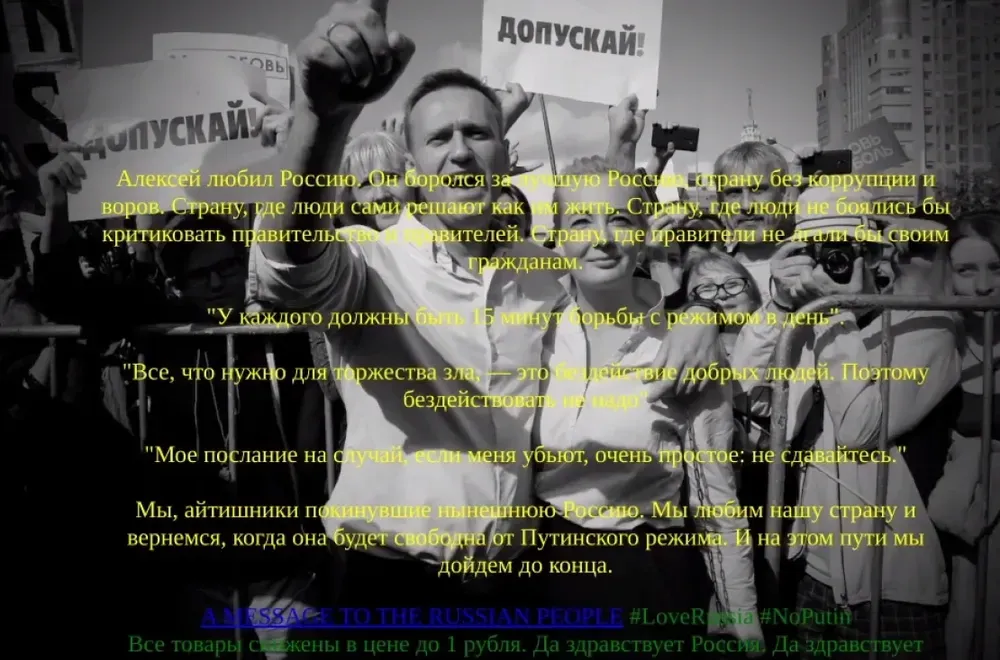Hackers stole russian prisoners' database to take revenge on russia for Navalny's death - media
Kyiv • UNN
The hackers claim to have stolen a database containing information on about 800,000 russian prisoners, their relatives and contacts from the Federal Penitentiary Service network and posted a photo of Navalny and his wife on the service's internal website.

A group of anti-Kremlin hackers gained access to the network of the Federal Penitentiary Service (FSIN) and, according to them, downloaded data on hundreds of thousands of prisoners. This was reported by the CNN TV channel, which was contacted by the hackers, UNN reports.
Details
The hackers claim to have stolen an FSIN database containing information on approximately 800,000 russian prisoners, their relatives and contacts, including data on prisoners in the colony where Navalny died on February 16.
They also posted a photo of the politician with his wife Yulia at a political rally on the internal website of the FSIN.
Trump hints that Putin is "probably" involved in Navalny's death18.03.24, 19:42 • 36648 views
According to CNN , the hackers identified themselves as representatives of various nationalities, including russian expats and Ukrainians. They explained that they were sharing the data "hoping that someone could contact them and help them understand what happened to Navalny."

In addition, the group gained access to the prison's online store, where relatives of prisoners buy food for them, and changed the prices of some products, reducing them to one ruble. This is evidenced by screenshots and videos published by the hackers.
The hackers also posted a photo of Navalny on the store's website. They sent out a warning to the administrators of the prison's online store not to remove the politician's image, and when they were refused, they destroyed one of the servers.
Addendum
It is noted that the analysis conducted by CNN revealed several duplicate records in the database, but it still contains information on hundreds of thousands of people.
CNN was able to match several names of prisoners in the screenshots shared by the hackers with people who, according to public records, are currently in russian prison.
Also, a researcher from the American cybersecurity company SentinelOne confirmed in a commentary for CNN that the published data has all the signs of authenticity and really comes from a prison store.
Recall
The EU imposed sanctions against 33 individuals and 2 organizationsinvolved in the death of russian opposition leader Alexei Navalny in a maximum security colony.